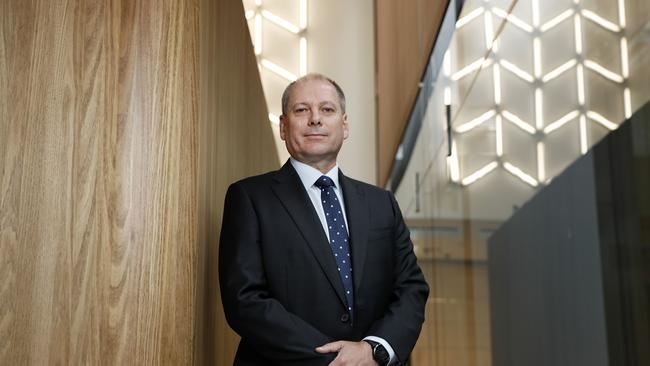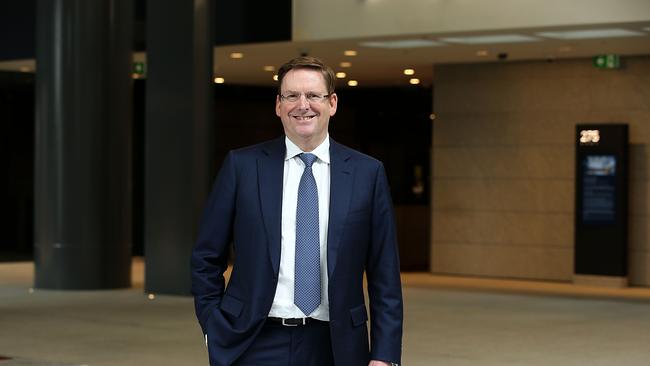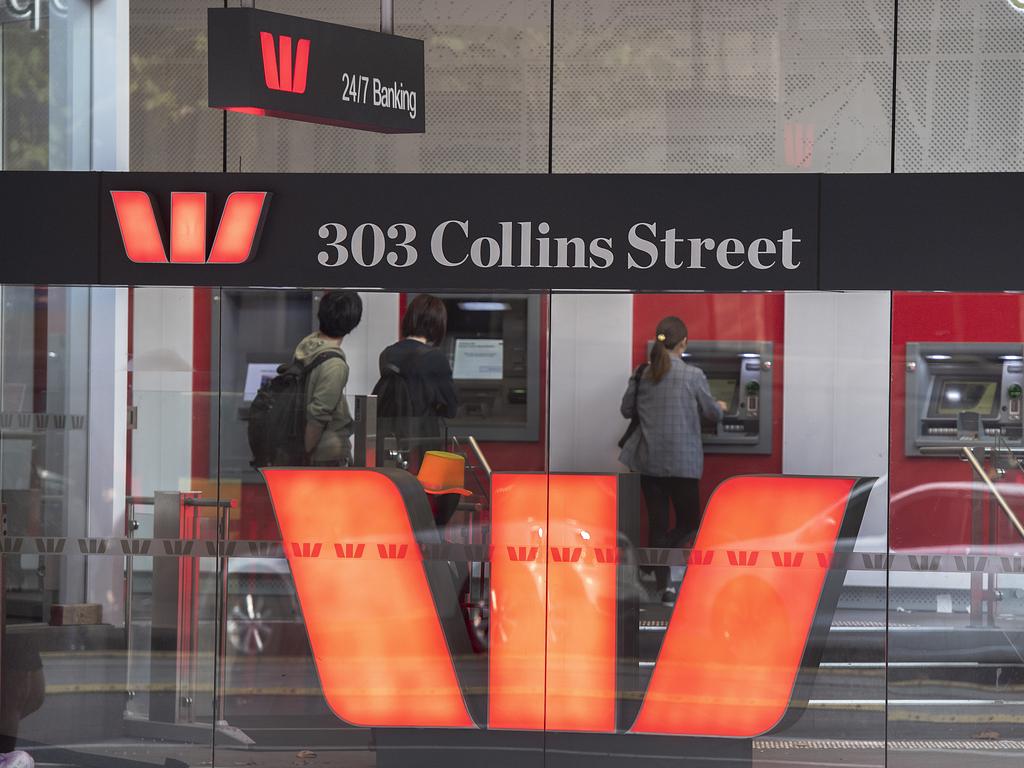Leadership talk grows at Westpac

Rowland will meet virtually with investors for a private discussion, as will CBA chief executive Matt Comyn, ANZ boss Shayne Elliott, and National Australia Bank CFO Gary Lennon.
It’s not so much the event itself but its timing which has helped to fan leadership speculation in Westpac’s senior ranks.
A week ago, CEO Peter King took the next step in the bank’s simplification program, reunifying the consumer and business banking divisions under consumer boss Chris de Bruin.
While the move had a strategic rationale, the internal response — to no one’s surprise — was to size up King’s potential successors.
Any perception of instability hasn’t exactly been cooled by chair John McFarlane staying true to his unconventional, hands-on style, meeting regularly for one-on-ones with executives.
McFarlane’s supporters would say he inherited a governance disaster and is well within his rights to keep a watchful eye over management.
The court enforceable undertaking agreed with the Australian Prudential Regulation Authority last year, in which Westpac pledged to substantially improve its risk governance deficiencies after the Austrac debacle, gave the bank 90 days to submit an integrated plan.
Westpac is believed to have submitted the plan to APRA, which is now reviewing it.
King knew very well what he was getting into when McFarlane awarded him the job full-time in April 2020, after he had served on an acting basis since December 2019.

Asked by this column if he was concerned about his chairman’s interventionist style, King said at the time that he thought about it “completely the other way”.
“John’s very clear on the role of the board and the role of the CEO, and expects a lot of the CEO,” he said. “He’s obviously very experienced and I’m quite looking forward to working with him and learning from him — he’s had some experiences I don’t have, so I feel like it’s a really good team.
“He’s a very good thinker, he’s got his experience, but at the end of the day he knows the CEO is accountable for what happens in the company.”
King’s employment contract switched to a standard, 12-month notice period last October, after the previous two-year term was removed.
Insiders say speculation that he might leave before the end of the year is misplaced.
However, if that were to happen, a fall-under-the-bus scenario would throw up two internal candidates — former ANZ banker Rowland and the head of specialist businesses Jason Yetton, who once ran Westpac’s retail and business banking division.
The longer-term candidates include de Bruin and institutional boss and ex-Deutsche Bank executive Anthony Miller, who has been in his current role since last October.
De Bruin was lured from Dubai last September, after spending almost three years as CEO of one of the largest non-bank financial institutions in the Middle East. As the new head of business and consumer, his empire extends to about 70 per cent of group profit.
The main challenge is to rebuild some momentum in the key consumer division after mortgage processing challenges offshore due to COVID shutdowns forced Westpac to move 1000 jobs back to Australia, at a cost of $45m a year.
In the meantime, the market has high expectations of Rowland’s cost efficiency program, to be unveiled at the half-year result on May 3.
Miller is not immune from the group-wide pressure for better returns, and Yetton has some lumpy assets to divest, including superannuation and platforms, before Westpac starts to even look like the lean machine envisaged by King.
A tier below the group executive level, further management moves include more duties for ex-ANZ banker James Hutton, who will add corporate and business development to his chief transformation officer role in specialist businesses.
Chief strategy officer Jamie Twiss is leaving the group, with a search commencing to find a replacement.
Finally, general manager group corporate and business development Macgregor Duncan will now run Westpac’s new digital banking-as-a-service platform after recent partnership announcements with Afterpay and SocietyOne.
Payments platforms
It’s no surprise that the application to the competition watchdog for a merger between BPay, eftpos and the New Payments Platform argues that the proposal will increase competition.
While the three businesses will amalgamate under a single parent company and board, they will continue as separate schemes and distinct brands.
The pitch to the ACCC is that there will be no lessening of competition because the core payment products don’t compete with each other in any meaningful way, although competition with the international card schemes which currently dominate retail transactions in Australia will intensify.
Greater co-ordination between the three organisations will also mean innovative products can be brought to the market more quickly and efficiently.
The major banks are shareholders in all three companies, but the NPP, eftpos and BPay have different combinations of investors. Coles and Woolworths, for example, are shareholders in eftpos, while the Reserve Bank is a shareholder in the NPP.
The RBA will not become a shareholder in the new entity and is therefore not an applicant.
There will be a number of issues for the Australian Competition and Consumer Commission to examine, including the extent to which the three schemes might otherwise trespass and expand into each other’s territory.
There is also concern among small businesses about eftpos remaining a strong competitor for debit cards. Earlier this month, the ACCC accepted a court-enforceable undertaking from Visa in relation to concerns that the scheme may have limited competition in relation to debit card acceptance through its dealings with large merchants.
gluyasr@theaustralian.com.auTwitter: @Gluyasr






Westpac chief financial officer Michael Rowland will turn spruiker for the bank’s turnaround story at Credit Suisse’s 24th annual investment conference this week.